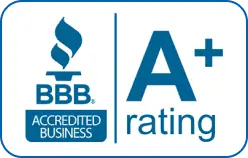A buy-sell agreement is the practical result of comprehensive business succession planning. It is a legally binding document which protects the interests of a company’s owners and permits the business to continue even in the event of the death, disability, or retirement of a business owner.
A buy-sell agreement, commonly referred to as buy-out agreement, is drafted by an attorney and can be implemented with all forms of companies including, partnerships, limited liability companies, and corporations.
The provisions in these arrangements are not “boilerplate.” Hence, careful thought and consideration with respect to the goals and objectives of each business owner is crucial. Establishing a buy-sell agreement forces each business owner to think about the issues that can impact the business and how they should be resolved.
If you own a successful company, a buy-sell agreement should be an essential piece of your business succession planning strategy. If you fail to implement this most important legal arrangement, your business is exposed to perils that can destroy your company.
Why wait? Make the commitment NOW to protect your business by getting your buy-sell agreement planning in order!
Key Takeaways of What is a Buy-Sell Agreement Funded with Life Insurance?
-
A buy-sell agreement funded with life insurance provides a structured plan for ownership transfer, preventing business disruptions in case of an owner’s death, disability, or retirement.
-
Life insurance funding guarantees that the deceased owner’s heirs receive fair market value for their business interest, reducing financial strain on both the family and remaining partners.
-
The agreement prevents unintended ownership transfers, such as a deceased owner’s spouse or children inheriting a stake in the company, ensuring that only qualified individuals retain control.
Do You Need a Buy-Sell Agreement?
If you have a successful business with more than one owner, the short answer is YES!
The following are just a few situations where it is crucial to execute some type of buy-sell agreement.
When There is a Need to Create an Instant “Market” for the Business.
This is important when it may be hard to find a buyer for the business in the event of the death or disability of a current owner. Some businesses just can’t be sold in the open marketplace for various reasons.
In these instances, a buy-sell agreement can stipulate that the remaining owners are mandated to purchase the interests of a departing owner’s interest. This arrangement guarantees that the deceased owner’s estate receives a fair value for their business interest.
When There is a Significant Age Discrepancy Between the Business Owners.
Business transition is not a matter of “if” but “when” is an owner going to retire or eventually have to sell her business interest. This is especially true for business owners as they reach retirement age and beyond. And, while many business owners will never retire, they are not going to live forever.
A buy-out arrangement is essential to the aging owner as it will address her exit strategy and how to extract maximum value for her business interest. This includes both supplement income for the future as well as fair market value to heirs.
Likewise, the buy-out agreement will provide peace of mind to the remaining owners as they have a written plan in place thereby avoiding potential conflicts.
When It is Crucial to Maintain Control of the Business.
Just stop and think for a moment about the circumstances surrounding your business. If you are like most owners, the last thing you need is to wake up one day and be in business with a deceased owner’s spouse or child who knows nothing about the business. But it happens all the time in businesses that fail to plan.
This potentially devastating outcome can easily be remedied with a basic buy-sell agreement that includes an automatic buy-out at the death or disability of an owner. In other words, a forced sale. With this provision, there are no arguments about ownership and the surviving heirs receive fair market value for their interests.
A buy-sell agreement makes the transition smooth and as painless as possible given the circumstances.
When Income is Needed for a Departing Owner or Her Heirs.
A large percentage of business owners have the majority of their assets tied up in the business. For this reason, income becomes an important issue for the departing owner and their heirs. This can create a huge financial strain on the business moving forward and cause significant anxiety to the exiting owner and family.
For example:
If an owner becomes incapacitated and unable to work, what is the true impact on the business? First, the business loses the disabled owner’s ability to contribute to earnings. Secondly, how is the business going to continue to pay the salary of the debilitated owner? Finally, if the disabled person is not going to be able to return to work, is there ever going to be an end to the disarray?
A buy-sell agreement should plan for the contingency of disability. A disability buy-out insurance policy can be purchased on each owner that will protect both the business and the owner and even the owner’s dependents.
When Liquidity is Needed to Cover Estate Taxes Due at the Death of an Owner.
As previously mentioned, many business owners have a significant portion of their total net worth retained in their business. This is a most important reason for business succession planning.
If an owner dies, and estate taxes are payable, without adequate liquidity to cover the estate tax, the sale of the decedent’s business interest may be forced resulting in a significantly lower value for the heirs.
A buy-sell agreement funded with life insurance can ultimately help the business avoid having to be liquidated at below market price to cover estates taxes due.
When a Professional Service Organization Needs to Maintain Ownership Control.
Many states have laws that prohibit a professional service organization like a physician’s group from having non-physician ownership. A buy-sell arrangement can mandate a legal buyer for the outgoing physician’s interest thereby avoiding a potentially serious problem.
trusted by 5,000+ clients
Compare Life insurance Rates
See rates and benefits tailored to your business needs.
Key Provisions of a Buy-Sell Agreement
1. Identifies Potential Buyers
The alternative are: the business buys back the stock, the remaining owner(s) purchase it or the stock is sold to an outside 3rd party.
Is it a priority of the company to keep all stock ownership among the existing owners? In most instances probably, yes.
It can be stipulated that if an owner plans to dispose of their business interest that they must first offer it for sale to remaining owners or the business itself. This provision is called “first right of refusal.”
This is a most critical part of the agreement because it can guarantee that any remaining owners can maintain control of the business if they desire. Essentially, the remaining owner(s) can eliminate any competing interest from outside candidates that may not have a like-minded vision for the future of the business.
It can also be mandated in the agreement that the remaining business owner(s) must buy the outgoing shareholder’s interest when made available. As referenced above, this concept is used to “create a market” for a business interest that may not be readily sellable.
If the business is permitted to be offered to an outside 3rd party, there may be language in the buy-out agreement limiting the new owner’s degree of management influence. In other words, the agreement can explicitly state that a new owner will not have the same level of managerial control as a departing owner.
2. The Agreement is Based on a Current Business Valuation
The agreement is based on a current business valuation which establishes the fair market value of the company and is the basis of the price and terms of sale when applicable.
-
Book Value
-
What multiple?
-
Fair Market Value
-
Business Appraisal
-
Built in increases every year or every three years or based on update appraisal?
3. The Purchase Price of a Business Owner’s Interest is Based Upon a Pre-Determined Formula
The purchase price of a business owner’s interest is based upon a pre-determined formula to be used at the time of death or disability. This allows a definitive price to be set for the ownership interest.
4. Identifies Important Triggering Events in the Agreement.
A triggering event is any contingency that could arise that would initiate an action.
-
Death of an owner and time frame for buy-out
-
Disability of an owner and time frame for buy-out
-
Owner reaches a stipulated retirement age
-
Owner desires to sell interest
-
Divorce of an owner
-
Bankruptcy
A properly drafted business buy-out will address exactly what is to happen if or when any of the above triggering events occur.
For example, at what age can an owner sell her business interest and receive full price for her stock? Is there a discount if she wants to sell early?
How much advanced notice has to be given if an owner decides to sell her interest?
5. Funding Mechanisms are Noted
Funding mechanisms such as life insurance and disability income insurance are noted. Installment sale. Payout method. How much life insurance will each Owner be required to maintain? The life insurance policy amount should be enough to cover each insured owner’s prorate share of Units at the Purchase Price. Disability Insurance.
6. Specific Instructions for Handling the Dissolution of the Business
If the Owners want to amend or change the Buy-Sell Agreement, what percentage of the Owners should be required? Generally, a high percentage of ownership agreement should be required to make this change. Perhaps, 80 to 100 percent.
7. Valid Reasons for Termination of the Agreement.
This provision outlines the specific circumstances under which a buy-sell agreement can be terminated, ensuring clarity and mutual understanding among all parties involved. Common valid reasons for termination include:
-
Mutual Consent: All parties agree to dissolve the agreement in writing.
-
Business Dissolution: The business ceases operations or is formally dissolved.
-
Ownership Changes: If one owner buys out all other owners, making the agreement unnecessary.
-
Merger or Acquisition: The business is sold, merged, or acquired by another entity.
-
Expiration of Term: If the agreement has a defined term, it terminates upon reaching the end date unless renewed.
Having clear termination provisions helps avoid disputes and ensures the agreement remains relevant to the business’s evolving needs.
8. A Systematic Process to Update Business Valuations and Adjust Insurance Coverages Should Be Outlined.
Buy-Sell Agreement Review Checklist:
-
Do you currently have a documented buy-out agreement?
-
When did you last update the agreement?
-
Do you have an established review process?
-
Have there been any changes that need to be updated?
-
Do you have a current business valuation?
-
Is the business value established in the agreement accurate?
-
Have you adequately funded the agreement?
-
If you have life and disability insurance policies funding the agreement, when is the last time they have been reviewed?
-
Are you in compliance with IRS regulations 101(j) for employer-owned life insurance?
Sample Buy-Sell Agreement
For more specific details see the Sample Buy-Sell Agreement.
Buy-Sell Agreement Advantages
-
Provides a smooth transition and continuity of management and ownership to the remaining business owners.
-
Creates an instant market for a business interest that may not otherwise be saleable.
-
Establishes a fair market valuation for federal estate tax purposes that is binding on the IRS. REF
-
Spells put the terms of payment and is easily funded with life insurance and disability insurance, if desirable.
-
Provides the liquidity to the retiring owner or to his estate in the event of death.
-
Provides fund to decedent’s estate to pay estate taxes and administrative cost.
-
Guarantees a fair return for a departing owner or their heirs.
-
Peace of mind and security for the business, the business owner’s and their families.
Buy-Sell Agreement Funding Options
Companies have several options to fund a buy-sell agreement in the event of a disability, death or retirement of a business owner.
Business Owner’s Personal Funds
Most business owners reinvest their money back into their businesses and therefore do not maintain large sums of available liquid assets on hand.
Finance the Purchase Out of Company Cash Flows
Also known as self-insuring, this approach is equivalent to doing no business succession planning at all. If a business owner dies or becomes disabled, in most cases, cash flows will decrease. Just when the need arises, the cash is not available to fund the terms of the agreement.
The Business Can Borrow the Funds
The business may be able to borrow the funds from a lender to fulfill the terms of the buy-sell agreement. The business can then pay back the lender over time thereby reducing the immediate financial impact. However, the loss of a key business owner will likely hurt cash flows and may also affect the borrowing ability of the company. Additionally, the additional interest expense may be excessive and burdensome over time.
Establish a Business Sinking Fund
Allows a company to accumulate the dollars needed over time. However, there are serious consequences if a business owner dies prematurely or sustains a disabling injury. In this case, the sinking fund would like be insufficient to honor the terms of the agreement.
Installment Sale or Payments
Similar to borrowing the funds except that the departing business owner or their heirs (seller) finances the buyer. The outgoing owner or her heirs must depend on the business to make principal and interest payments. If the business fails installment payments may cease.
Life insurance and Disability Income Insurance on the Owners
By far the easiest and most economical way to fund a buy-sell agreement is with life insurance and disability buy-out insurance. Both life and disability income insurance can provide the liquidity to fund a buy-sell agreement at the exact time the funds are needed. If a covered business owner dies, a life insurance policy can guarantee that the liquid funds will be available to fulfill the terms of the agreement.
At the same time, life insurance policies can also grow cash value that can be used to purchase a retiring partner’s interest. Finally, a disability buy-out policy can be secured to guarantee that funds will be readily available in the event of a long term disability to a business owner. Life and disability insurance policies are the perfect vehicles to cover potential business succession risks.
Types of Buy-Sell Agreements
Buy-sell planning is an extremely important part of long term business continuation planning, but there are more than one kind you can draft.
The common types of buy-sell plans include the stock redemption agreement or entity plan, the cross purchase buy-sell agreement and the wait-and-see buy-sell agreement.
Stock Redemption Plan or Entity Plan
An agreement between the company (Entity) and the business owners or partners whereby the owners agree to sell their ownership interest back to the company if they become disabled or wish to retire. If there is a death of an owner, the owner’s estate is required to sell the deceased owner’s interest back to the company.
Cross-Purchase Agreement
A written agreement among the company partners or stockholders to purchase each other’s shares at the disability, retirement or death of a business owner.
Wait-and-See Buy-Sell Agreement
An agreement allowing the business owners to delay the selection of an business entity plan or a cross-purchase buy-sell agreement until an actual death, disability, retirement or sale of a business interest.
Which Type of Buy-Sell Plan is Best for My Company?
There is no one-sized fits all, so even these could be just an introductory on what would need to be known to begin the process of drafting the document. The questions below will help you identify the type of buy-sell agreement that may best fit your business.
-
How many business owners does the company have?
-
How old are the individuals that own the business?
-
Is each of the owners insurable?
-
What are the ownership interests of each owner?
-
What is the value of the business?
-
Is this a family-owned company?
-
What is the potential tax impact for each option?
-
What are the estate planning implications for each option?
The answers to each of these questions will provide insight into which plan will suit your business. Consulting with your business attorney, CPA or legal or tax advice is the only way to assure you address all potential concerns and choose the proper plan structure.
Common Pitfalls to Avoid When Creating a Buy-Sell Agreement
Pitfall #1: Inadequate Funding Mechanisms
One of the most common pitfalls with buy-sell agreements is not having enough provision for funding mechanisms. Without proper financial planning, the agreement, despite its well-intentioned clauses, may fail to execute effectively when needed. Not enough funding can quickly leave the business in financial jeopardy, struggling to buy out the other owner’s share and leading to forced liquidation or an unfavorable sale.
The role of life and disability insurance in this context cannot be overstated. These insurance policies provide the necessary liquidity to facilitate the purchase of an outgoing partner’s interest without straining the company’s finances. For example, in the event of a partner’s untimely death or disability, the insurance payout can be used to buy their share to help the business continue with minimal financial disruption.
Consider this: a business partner unexpectedly dies without life insurance. The remaining partners might need to take out loans or dip into business reserves to keep the company running, destabilizing its long-term financial health. But with a life insurance policy designated for this purpose, the buy-sell agreement can be executed smoothly, safeguarding the business’s and the deceased partner’s family’s interests.
Pitfall #2: Outdated Agreement Terms
The business environment is fluid, so it’s usually the case that buy-sell agreements aren’t set in stone and need updating regularly. One common oversight is allowing the terms of the agreement to become outdated, which can lead to significant complications, especially concerning the valuation of the business.
An agreement based on an outdated business valuation might not reflect the company’s current worth, leading to unfair buyouts and potential disputes among partners. If a business has grown significantly since the last valuation, the departing partner or their beneficiaries might receive less than the fair market value of their share. Conversely, if the business value has decreased, the remaining partners might overpay to buy out the partner.
This has a simple fix: review and update your buy-sell agreement regularly. A good practice is to reevaluate the agreement annually or whenever there is a significant change in the business, such as a major increase in revenue, the introduction of new products or services, or a change in ownership structure.
Pitfall #3: Ignoring Tax Implications
Neglecting the tax implications is a critical pitfall in structuring a buy-sell agreement. A poorly configured agreement can lead to unexpected tax burdens for the business or the individual partners.
If the agreement isn’t structured properly, the proceeds from a life insurance policy meant to fund a buyout might mostly go to the tax man. To mitigate these tax risks, it’s essential to involve tax professionals in drafting and reviewing the agreement. Tax experts can provide valuable insights into structuring the agreement to minimize tax liabilities. They can navigate complex tax regulations and suggest strategies that align with the latest tax laws.
Regularly consulting tax experts ensures the buy-sell agreement remains tax-efficient and compliant during its lifespan, protecting all involved parties from unforeseen tax issues.
Pitfall #4: Lack of Clarity and Detail
One of the biggest challenges with an effective buy-sell agreement is clearly communicating the terms. A common pitfall that can lead to serious disputes and misunderstandings is including vague terminology or conditions.
Ambiguity in the agreement can result in different interpretations, leading to conflicts among partners and potentially lengthy legal battles. For instance, unclear definitions of disability or valuation methods can cause disagreements on when and how the agreement should come into effect.
To prevent these hassles, it’s crucial to have every clause in the buy-sell agreement cover the three basics: it needs to be clear, detailed and unambiguous. This includes precise definitions of key terms, specific conditions under which the agreement is activated, and a well-defined process for business valuation and buyout procedures.
A well-drafted buy-sell agreement leaves little room for misinterpretation, safeguarding everyone’s interests and guaranteeing the smooth continuation of the business in the face of unforeseen events.
Frequently Asked Questions about What is a Buy-Sell Agreement Funded with Life Insurance?
What is a Buy-Sell Agreement Life Insurance?
It’s a life insurance policy used to fund a buy-sell agreement. When an owner dies, the policy payout is used by the remaining owners or the business to buy out the deceased’s share, ensuring financial stability.
What are the Disadvantages of a Buy-Sell Agreement?
It can be costly, especially if funded by life insurance. It may also limit flexibility in selling shares, cause valuation disputes, and require ongoing legal and financial maintenance. Check out our article for more information about key person life insurance cost.
Can You Back Out of a Buy-Sell Agreement?
In most cases, you cannot back out without mutual agreement from all parties. The contract is legally binding, but modifications or termination may be possible if all owners agree.
Conclusion and Summary of What is a Buy-Sell Agreement Funded with Life Insurance?
A buy-sell agreement funded with life insurance is a critical safeguard for business continuity. Without a structured plan, ownership transitions can become chaotic, leading to financial instability and legal disputes. Life insurance funding ensures that heirs receive fair value for their inherited business interest while allowing remaining owners to retain control. Business owners who take a proactive approach to succession planning protect their company’s legacy, financial health, and the interests of all stakeholders. If you haven’t established or reviewed your buy-sell agreement recently, now is the time to make it a priority.













